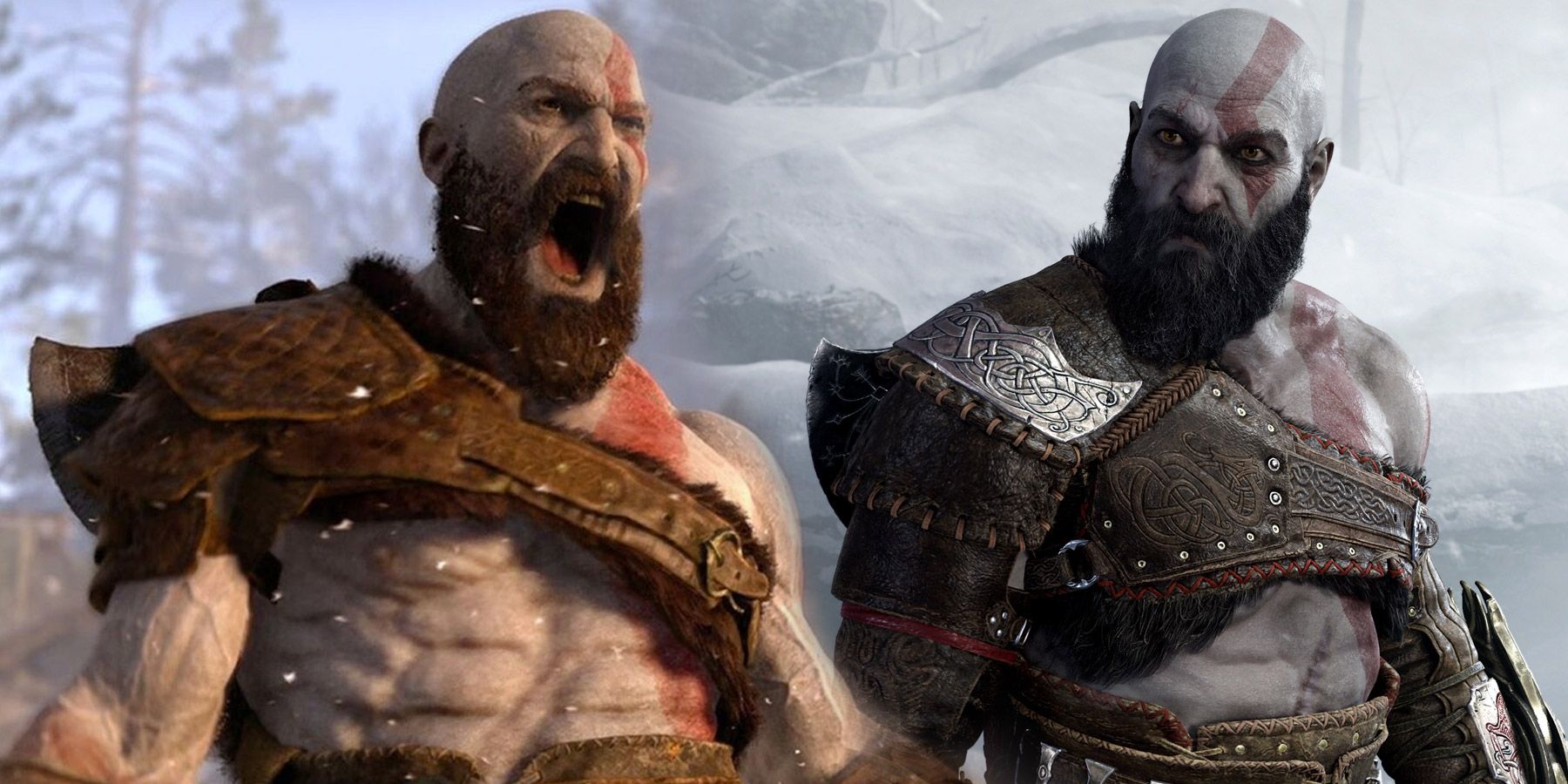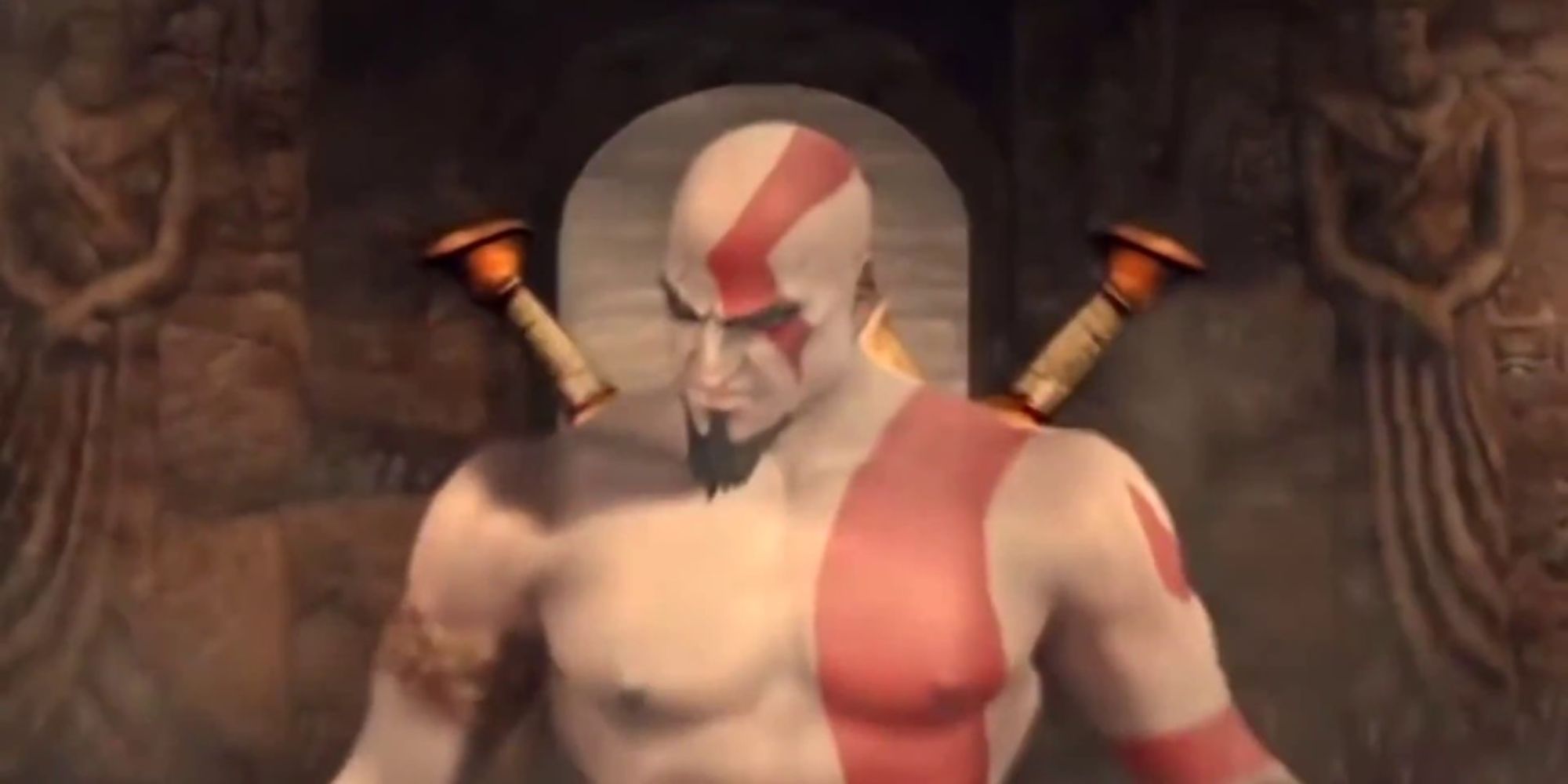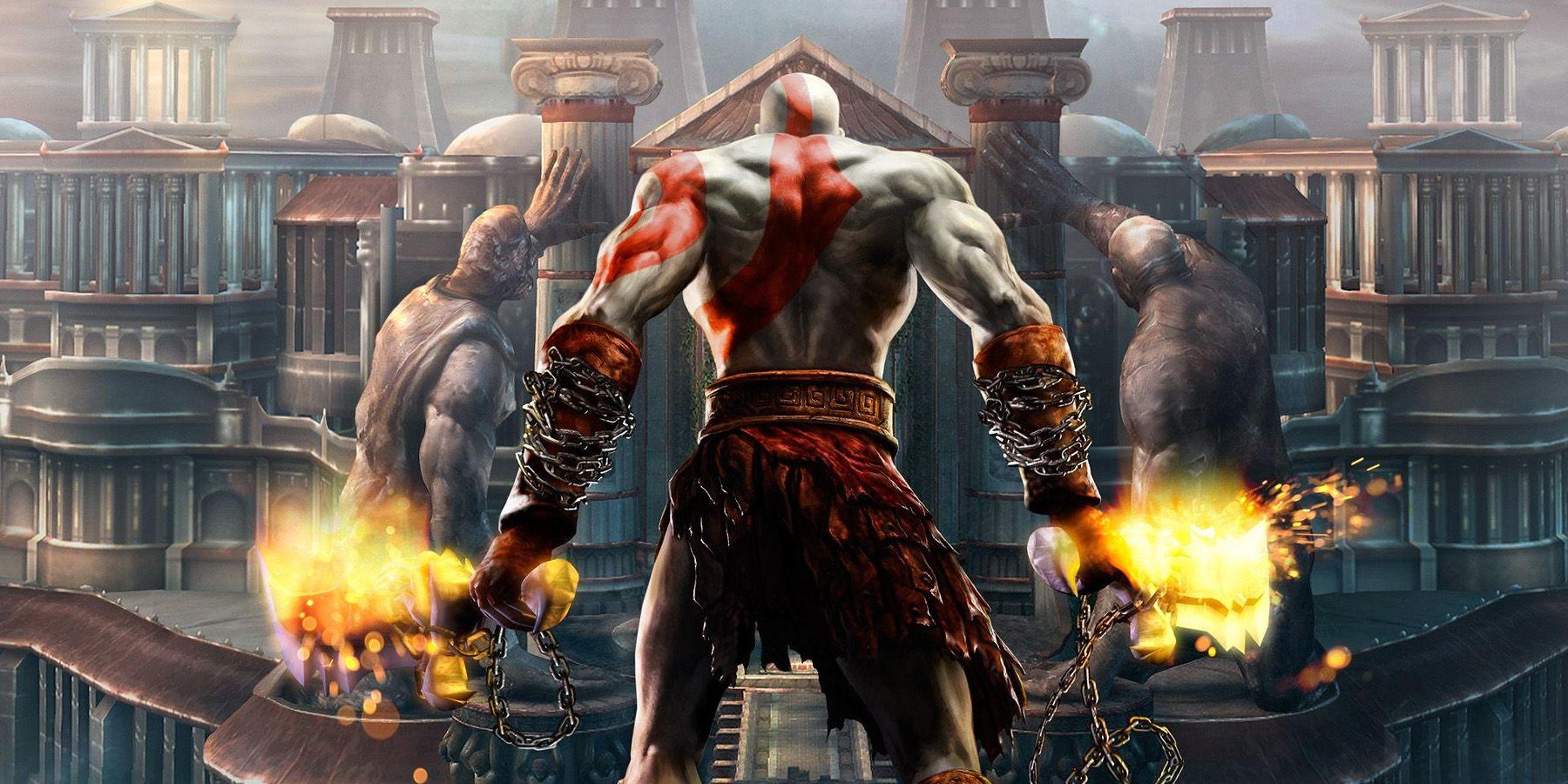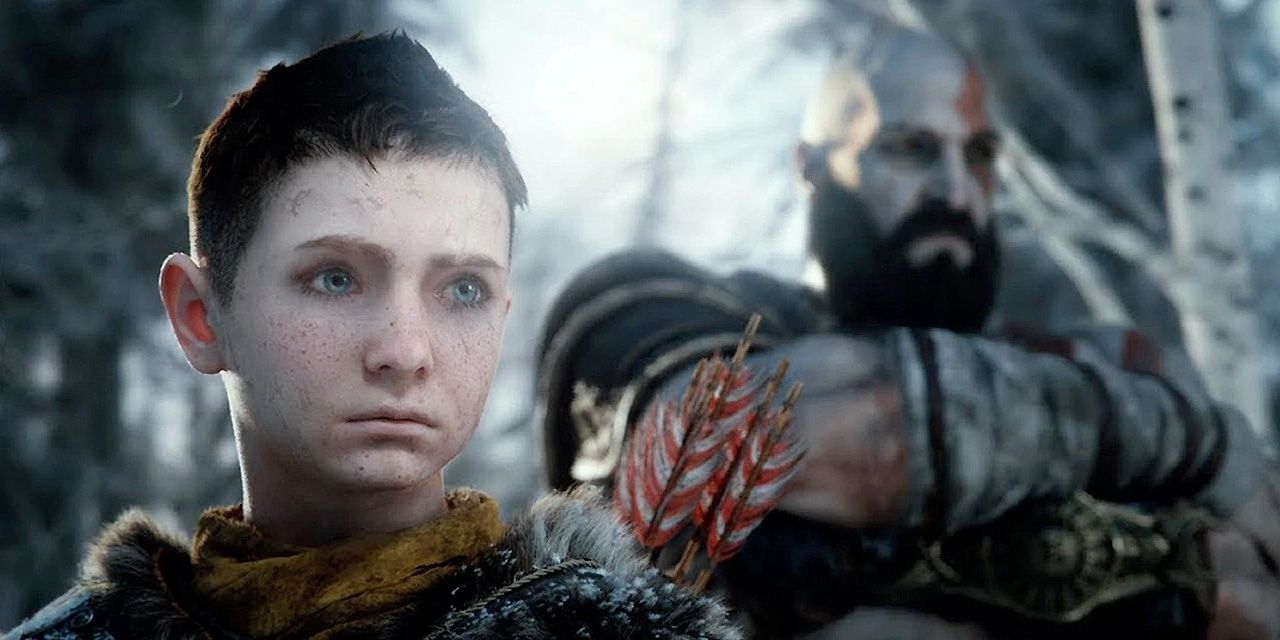Since God of War: Ragnarok was officially unveiled for the PS4 and PS5, there’s been a sense among fans that Kratos’ story could be approaching a crescendo. If the prophetic murals that were featured at the end of 2018’s game weren’t enough, Santa Monica Studio has leaned into those same vibes itself. After all, the studio has preemptively revealed that the upcoming game will bring the franchise’s Norse sage to a close after just two entries.
Naturally, this has prompted some fans to speculate that a climactic reckoning could be coming Kratos’ way during God of War: Ragnarok. After 8 mainline installments and nearly two decades of stories and character development, that would make a lot of sense. One line of dialogue that featured prominently in the game’s PlayStation Showcase trailer last year though is the biggest indicator that the former Spartan General will soon be forced to confront his own past.
Kratos’ Old Characterization
Even though a lot of God of War’s Greek-themed games have gone down in history as classics, it could be argued that Kratos was often the weak link within them. That is, at least from a characterization perspective. While there’s no denying that hacking and slashing through the ancient pantheon was fun from a gameplay perspective, the series’ protagonist often rubbed fans the wrong way. To a certain extent though, it could be argued that was a deliberate design decision on Santa Monica Studio’s part.
Throughout the original God of War trilogy and its side games, Kratos was intentionally depicted as a hot-headed individual. Having been betrayed and manipulated by the Greek gods on countless occasions, players were given the opportunity to control the character during his violent and often murderous quest for revenge. While Santa Monica Studio avoided depicting the Greek gods as sympathetic victims, it also crucially steered clear of ever portraying its main character as a true hero.
This was partly how Santa Monica Studio was able to push Kratos’ violent acts to the extreme. While there were fleeting moments of levity, as seen within his and Pandora’s relationship in God of War 3, most of his decisions aired on the murky side of morality. Between the accidental murder of his family and the death of millions of innocent people following Greek mythology’s collapse, it’s fair to say that Kratos’ past is defined by tragedy, violence, and anger.
Kratos’ General Rage
Two lines of dialogue in the God of War: Ragnarok PlayStation Showcase trailer suggest that Kratos is going to be forced to address his past head-on during the sequel. In response to the Greek god of war’s refusal to engage the Norse pantheon directly, Atreus can be heard demanding that his father look at the situation as a General. Painfully aware of how that mentality has caused immense suffering and destruction in the past, Kratos reacts with visible anger. Having utilized his rage to wage war previously, the character is now adamantly against war out of fear that his old self could resurface, if nothing else.
It’s worth keeping in mind that part of Kratos’ characterization within the Greek saga was his Spartan upbringing and rank within its army. Being a General was essentially the gateway that led to his confrontation with the gods of the realm in the first place and the bloodshed that followed. Santa Monica Studio’s decision to call the characters past out in such a manner infers that it will play a large role within God of War: Ragnarok. The way in which Kratos breaks his somber stance and reacts angrily could even be interpreted as a subtle nod to the character’s infamous Spartan Rage.
Similarly, so too could the line of dialogue that can be heard later from Thor within the trailer. The way in which the Norse god addresses’ Kratos’ apparent calm and reasonable demeanor sounds like an attempt to goad the latter into breaking the veneer in question. With Tyr’s trophy room having revealed that the Norse pantheon is somewhat familiar with Kratos’ past, it stands to reason that Thor knows what his opponent is hiding within. This could mean that part of the Norse pantheon’s quest to stop Kratos will be fueled by a desire to confront him with his past misdeeds.
Atreus’ Link to the Past
Since God of War 2018’s closing chapters shone a spotlight on Atreus’ role within Ragnarok, players have been fearful of a confrontation between the young demigod and his father. Thanks to references to Loki and a mural of Kratos seemingly dying at his son’s hand, there’s been a sense that the Spartan General’s past was set to catch up to him. From a narrative perspective, this would make sense. Even though Kratos has taken visible steps to try and atone for what he’s done, facing the past head-on is a big part of securing true redemption.
Atreus intentionally or unintentionally calling out Kratos’ murky past during that one line of dialogue suggests that he himself will play a significant role in his father’s quest. Based on the God of War franchise’s cyclical history, some fans have speculated that the confrontation between the two could end up being violent and bloody. After all, so far Zeus and Kratos have already established a tradition of patricide within their family. In some respects, the cycle being maintained would almost be fitting narratively as a result.
However, other conversations between Kratos and Atreus suggest that the former’s past won’t lead to familial infighting. It’s clear that Atreus is desperate for answers from the Norse pantheon, in relation to where his destiny is heading. While he can be heard begging his father to change his tactics and testing his patience with references to Faye, there isn’t really bad blood between the pair. How Kratos is forced to battle his past could end up being an internal fight rather than a physical one.
It’s possible that the idea of Atreus killing Kratos might be a clever piece of misdirection on Santa Monica Studio’s part. It seems just as likely that the son’s insistence that his father employ his older tactics will be the catalyst that gets him killed in the end. Battling his past head-on could either make the war worse or end up leaving him vulnerable thanks to his personal growth. Instead of the mural being a literal snapshot of the future then, it could be interpreted more symbolically.
God of War: Ragnarok is scheduled to release in 2022 for PS4 and PS5.




